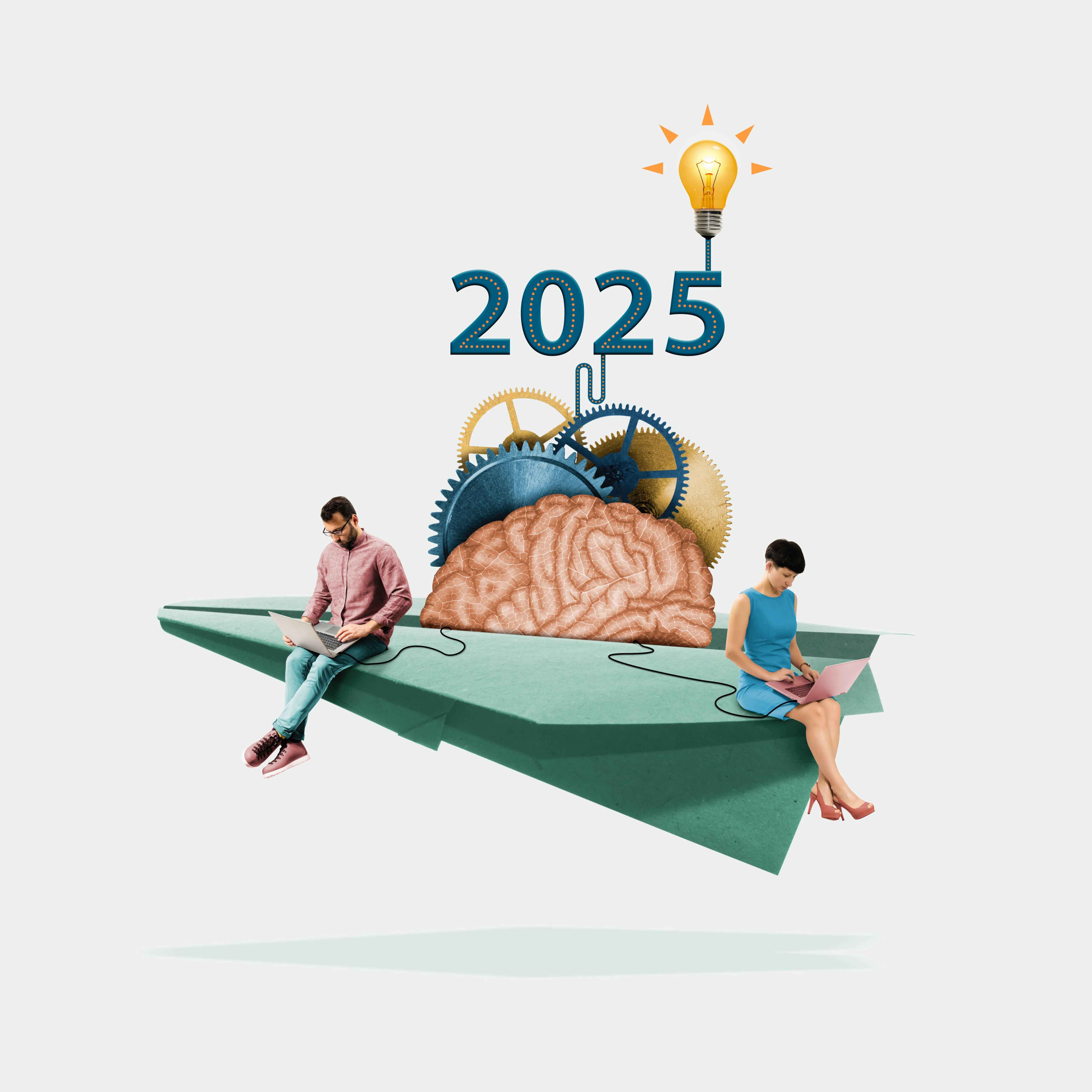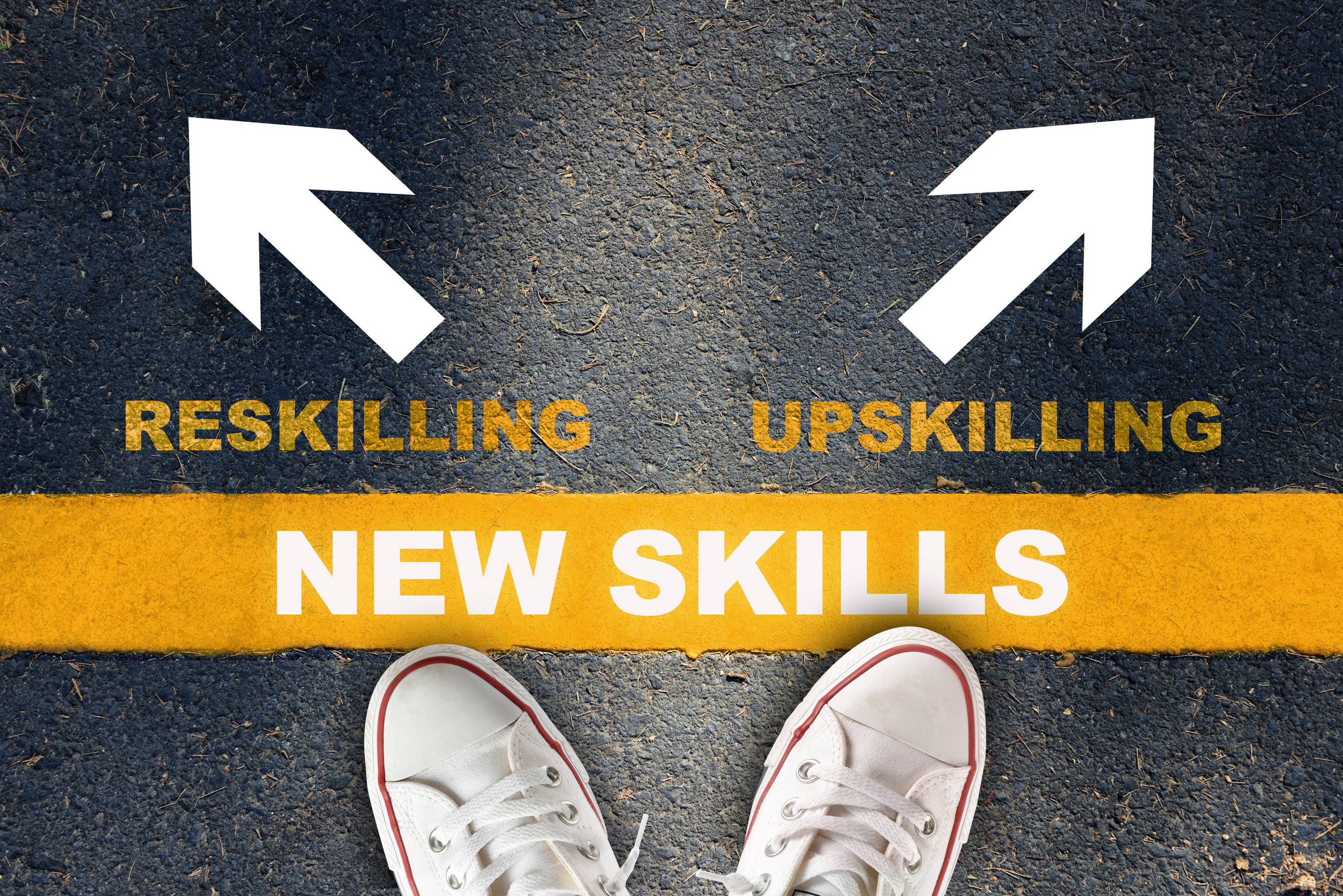Artificial intelligence is no longer just a buzzword. From personal assistants to supply chain optimisation, AI has become central to how we work, communicate, and make decisions. As companies continue to integrate this technology across processes, professionals with AI skills are quickly becoming indispensable.
In 2025, it’s not just about being tech-savvy — it’s about understanding the capabilities of AI and knowing how to harness them effectively. Whether you're a data analyst, marketer, or business leader, developing these skills can help you stay competitive and adapt to tomorrow’s workplace demands.
The Growing Relevance of AI Skills Across Industries
Businesses across healthcare, finance, retail, logistics, education, and even agriculture are turning to AI to boost efficiency, cut costs, and personalise services. AI now powers everything from fraud detection systems and chatbots to self-driving cars and medical diagnostics.
This rapid adoption means one thing: professionals who want to thrive must build a toolkit of AI skills. These aren’t limited to coding. They span data handling, decision-making, and designing solutions that solve real-world problems. If you’ve been thinking about what AI skills are in demand, check out the technologies that are shaping AI-driven innovation today.
Top 5 In-Demand AI Skills for 2025
As AI technologies become more advanced and accessible, the demand for specialised expertise is only intensifying. These AI skills are driving progress across sectors and will be essential for professionals aiming to stay relevant in 2025 and beyond.
1. Machine Learning
Machine learning (ML) is the foundation of most modern AI systems. It allows machines to learn from data and improve over time without being explicitly programmed. From personalised recommendations on Netflix to fraud detection in banking, ML is the engine behind many smart technologies we use every day.
Before you dive into ML, you’ll need to understand statistical modelling, algorithms, and tools like Python and scikit-learn. If you're exploring how to learn AI skills, ML is an ideal entry point that offers a mix of theory and application for building a solid technical base.
2. Deep Learning
A subset of ML, deep learning focuses on neural networks designed to simulate human thinking. It powers complex applications such as facial recognition, self-driving vehicles, and real-time language translation.
To get started with deep learning, you'll need to be familiar with frameworks such as TensorFlow or PyTorch, as well as concepts like convolutional neural networks (CNNs) and recurrent neural networks (RNNs). Understanding how deep learning models are trained and evaluated will give you a significant edge in AI-related roles.
3. Natural Language Processing
Natural Language Processing (NLP) is the branch of AI that deals with understanding and generating human language. It enables machines to analyse text, translate languages, summarise documents, and even detect sentiment.
With the rise of virtual assistants and AI chatbots, demand for NLP expertise has surged. If you're looking at what AI skills are in demand in marketing, customer service, or tech, NLP is a top contender. Tools like spaCy, NLTK, and Transformers can help you build your skillset through hands-on experimentation.
4. Computer Vision
Computer vision allows machines to interpret visual information. Think facial recognition, quality control in manufacturing, and even medical imaging analysis. It’s an essential skill in industries like automotive, retail, and healthcare today.
Those interested in computer vision should learn how to work with image datasets, apply object detection algorithms, and use libraries like OpenCV. As part of a broader AI skills strategy, computer vision complements NLP and ML, creating a well-rounded foundation for solving real-world problems.
5. Prompt Engineering
In the age of generative AI, prompt engineering is fast becoming a critical skill. It involves designing inputs that guide large language models (like ChatGPT) to generate relevant, accurate, and useful outputs. While it may sound simple, effective prompt engineering requires an understanding of language models, context, and output structure.
Professionals skilled in prompt engineering are already in demand across creative, technical, and business sectors. If you're wondering how to learn AI skills in this space, start by experimenting with open-access models and analysing how small prompt changes affect responses.
How to Learn AI Skills and Stay Competitive
Mastering these AI skills doesn’t mean enrolling in a four-year computer science degree. Today, there are flexible, accessible ways to upskill, whether you're starting from scratch or building on existing experience.
Consider some of these tried-and-tested strategies to get started:
-
Take structured courses that cover both theory and application, from machine learning foundations to deep learning model building.
-
Work on personal projects to apply your knowledge to real-world challenges and build a tangible portfolio.
-
Join AI communities and forums for peer support, resource sharing, and up-to-date discussions on trends.
-
Explore AI competitions and open datasets to practise, test, and refine your problem-solving skills.
-
Enrol in professional training programmes, such as London TFE’s artificial intelligence training, designed to give you hands-on, industry-relevant experience and practical outcomes.
Build the Right AI Skills for What’s Next
While technical competence matters, the future of AI will also rely on softer capabilities, such as creativity, ethics, and cross-functional thinking. The professionals who thrive won’t just understand AI skills; they’ll be the ones who know when and how to apply them responsibly. As companies seek to humanise AI and minimise bias, well-rounded, thoughtful talent will stand out.
Whether you’re pivoting careers or strengthening your current role, now is the time to invest in practical, high-impact training. London TFE offers a range of AI-focused programmes that can help you develop both the technical and strategic capabilities needed to thrive in the field, with expert-led sessions, real-world case studies, and tools so you can stay competitive in a fast-moving landscape.
Author: LondonTFE
London Training for Excellence is a distinguished UK-based training company renowned for its global reach and exceptional educational offerings. With a team comprised of passionate and knowledgeable industry experts, we consistently deliver high-quality, award-winning courses and 'real-life’ lessons, guaranteeing that all our clients benefit from the utmost standards of excellence throughout their educational journey.
 All Courses
All Courses
 Business Administration
Business Administration Chemical Engineering
Chemical Engineering Communications and Public Relations (PR)
Communications and Public Relations (PR) Compliance and Legal
Compliance and Legal Contract and Project Management
Contract and Project Management Customer Experience and Relationship Management
Customer Experience and Relationship Management Energy and Sustainability
Energy and Sustainability Finance and Accounting
Finance and Accounting Health, Safety and Environment
Health, Safety and Environment Hospitality & Tourism
Hospitality & Tourism Human Resources and Talent Development
Human Resources and Talent Development Industrial Manufacturing and Production
Industrial Manufacturing and Production Innovation and Artificial Intelligence (AI)
Innovation and Artificial Intelligence (AI) Leadership and Management
Leadership and Management Oil and Gas
Oil and Gas Procurement & Supply Chain Management
Procurement & Supply Chain Management Quality and Productivity
Quality and Productivity Retail and E- Commerce
Retail and E- Commerce Sales and Marketing
Sales and Marketing Sports Event Management and Operations
Sports Event Management and Operations Strategy and Business Planning
Strategy and Business Planning Sustainability and CSR
Sustainability and CSR Learning Solutions
Learning Solutions
 About Us
About Us
 iLearn Blog
iLearn Blog
 Directory Calendar
Directory Calendar
 Contact Us
Contact Us
 All Courses
All Courses
 Business Administration
Business Administration Chemical Engineering
Chemical Engineering Communications and Public Relations (PR)
Communications and Public Relations (PR) Compliance and Legal
Compliance and Legal Contract and Project Management
Contract and Project Management Customer Experience and Relationship Management
Customer Experience and Relationship Management Energy and Sustainability
Energy and Sustainability Finance and Accounting
Finance and Accounting Health, Safety and Environment
Health, Safety and Environment Hospitality & Tourism
Hospitality & Tourism Human Resources and Talent Development
Human Resources and Talent Development Industrial Manufacturing and Production
Industrial Manufacturing and Production Innovation and Artificial Intelligence (AI)
Innovation and Artificial Intelligence (AI) Leadership and Management
Leadership and Management Oil and Gas
Oil and Gas Procurement & Supply Chain Management
Procurement & Supply Chain Management Quality and Productivity
Quality and Productivity Retail and E- Commerce
Retail and E- Commerce Sales and Marketing
Sales and Marketing Sports Event Management and Operations
Sports Event Management and Operations Strategy and Business Planning
Strategy and Business Planning Sustainability and CSR
Sustainability and CSR Learning Solutions
Learning Solutions
 About Us
About Us
 iLearn Blog
iLearn Blog Directory Calendar
Directory Calendar
 Contact Us
Contact Us















































 Course category
Course category Course Venue
Course Venue
